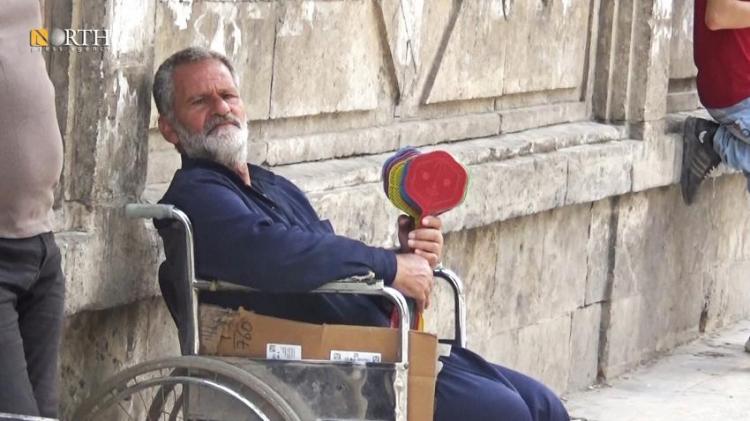Aleppo – North-Press Agency
Ali al-Agha
In Aleppo, elderly men and women are forced to work in stalls in markets and public squares to provide for their families, amid the effects of the war over the past years and in light of the absence of effective relief and development efforts by the Syrian government or humanitarian organizations.
Salim Za'arour, a salesman from Aleppo, has five sons and two daughters, but his adult children cannot help him because of what he called their "difficult circumstances", so he remains responsible for four children.
"The stall does not fully meet the needs of the family due to the deterioration of the living situation in the country, which forces low-income individuals to resort to anything in order to obtain even a loaf of bread," he told North-Press.
According to the Directorate of Social Affairs and Labor in the city of Aleppo, the number of stall sellers in the city of Aleppo this year has increased by 83% from previous years.
Ali Barboura, who is blind and has seven children, said that his young son had to join the compulsory military service of the government forces, and that his living situation is very difficult as no one helps him to feed his children and meet the needs of his family.
Now, Barboura is selling biscuits and juices in order to obtain daily food, in addition to some of his children who work in similar jobs after they dropped out of school.
In the event that their income cannot meet their daily needs, these elderly people resort to employing their children to sell products in stalls or roam with them in streets and main squares.
Du'a Sharbaji, who takes care of her five children after her husband died in a bombardment on al-Sha'ar neighborhood five years ago, said that hard conditions forced her to sell socks in order to meet the needs of her children, amid the poor living situation of her husband's family.
She added that she applied to several humanitarian organizations to help her or give her children an opportunity to go to school, but she found no benefit. "I am forced to work with my children in debt-funded stalls until the products are sold."
Saleh Barakat, director of Social Affairs and Labor in the Syrian government, said that the directorate has had this "tragic pphenomenon" in mind since the beginning of this year, after it relied on the Association for the Elderly to help them.
The Directorate promises to provide suitable jobs for the elderly and blind who are forced to work, but it links its programs with the risk of the outbreak of coronavirus, and confirms that the Association for the Elderly did not provide any assistance to them.

